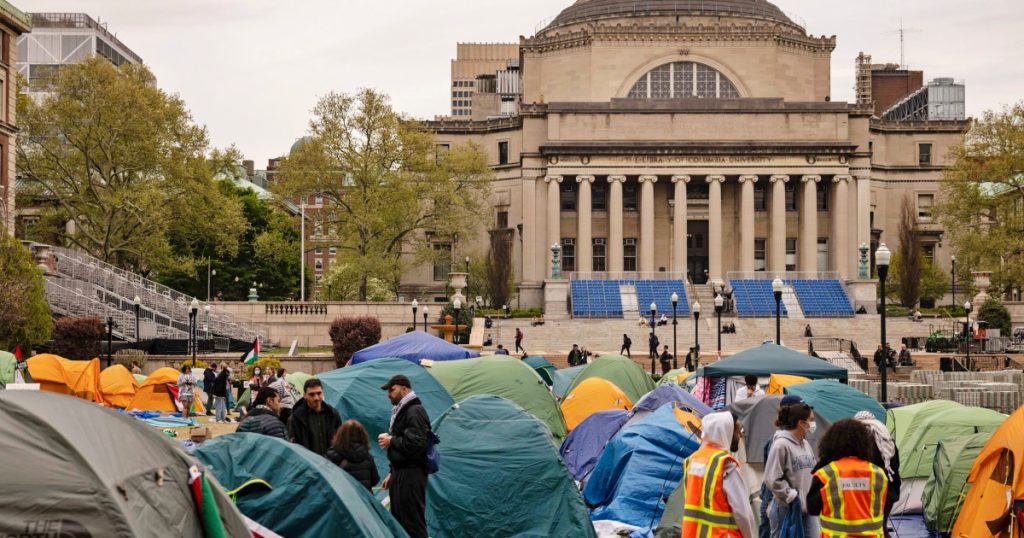Columbia University’s president, Minouche Shafik, announced that discussions with student organizers regarding divestment from Israel had failed. The encampment protest on campus was seen as creating an unwelcoming environment for Jewish students and faculty, and a distraction for the student body. Shafik emphasized the importance of the upcoming commencement and expressed a desire not to deprive students and their families of a graduation celebration. Despite the university’s decision not to divest from Israel, it offered to expedite the review process for new proposals from students through the Advisory Committee for Socially Responsible Investing.
The encampment protest at Columbia was one of the first at elite institutions, focusing on demands to divest from investments related to weapons manufacturing and support for Israel during the Israel-Hamas conflict. The protest has generated a wave of similar demonstrations on campuses across the country. While the talks between the university and student organizers have reached a stalemate, some progress has been made, such as offering investments in health and education in Gaza, including supporting early childhood development and displaced scholars. Despite the impasse, efforts are being made to find alternative solutions within the university community to resolve the crisis.
The protests on college campuses have sparked discussions about divestment from Israel and generated controversy and tension among students and faculty. The encampment protests have become a focal point for activism and have drawn attention to the Israeli-Palestinian conflict and the role of universities in supporting certain investments. The protests have also faced challenges such as mass arrests and crackdowns, as well as concerns about creating a hostile environment for certain groups on campus. The situation at Columbia reflects broader debates about social responsibility and ethical investing in higher education.
As the Columbia University protest continues, the administration is exploring internal options to end the encampment as soon as possible. Shafik urged those involved in the protest to voluntarily disperse, while also committing to keep the university community updated on any new developments. The university’s offer to expedite the review process for student proposals indicates a willingness to engage with the concerns raised by the protesters, even if a decision to divest from Israel has not been reached. The situation remains fluid, with ongoing negotiations and efforts to find a resolution that addresses the demands of the protesters while upholding the university’s commitments and values.
The protests at Columbia University have brought attention to issues of social responsibility and ethical investing, particularly in relation to the Israeli-Palestinian conflict. The campus activism reflects broader trends in higher education, where students are increasingly demanding that universities align their investments with social justice and human rights principles. The protests have also highlighted the challenges of addressing complex political issues on college campuses, where diverse perspectives and opinions often clash. Despite the tensions and disagreements, the protests have opened up important conversations about the role of universities in promoting ethical investment practices and engaging with global conflicts.
Overall, the situation at Columbia University underscores the complexities of addressing divestment and social justice issues within the context of campus activism. The protests have raised questions about the ethical responsibilities of universities, the impact of divestment decisions on different stakeholders, and the challenges of navigating politically sensitive topics in a higher education setting. As the protests continue and negotiations unfold, there is an opportunity for dialogue and engagement to find common ground and advance understanding among all parties involved. The outcome of the Columbia protest and similar demonstrations on college campuses will have implications for the broader movement for ethical investing and social responsibility in higher education.













